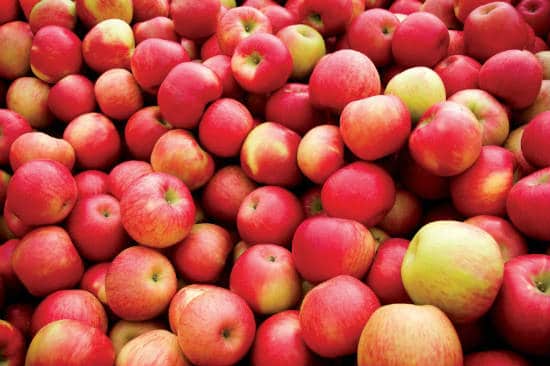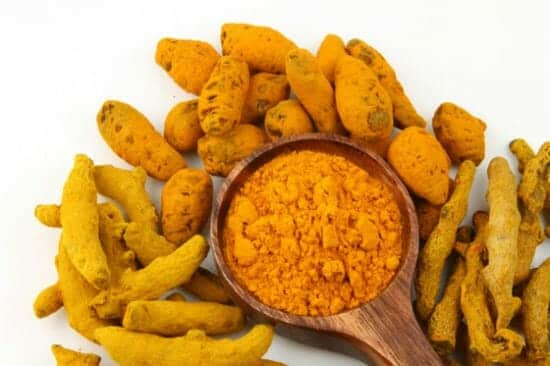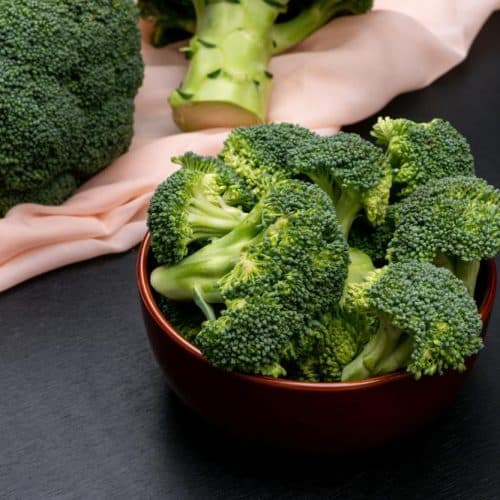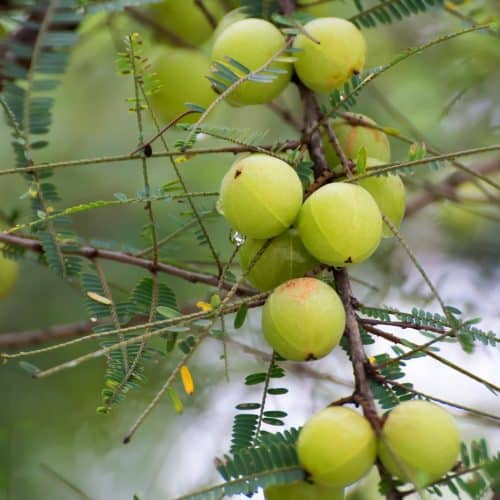Brinjal, or Solanum melongena, belongs to the nightshade family of plants, the Solanaceae. A widely grown plant across subtropical and tropical regions, brinjal is revered for its rich source of bioactive compounds like flavonoids and alkaloids. Commonly known as Begun in Bengali, Baigan in Hindi, Vartaku in Sanskrit, Vangi in Marathi, and Eggplant in English, this ubiquitous vegetable comes in an impressive array of shapes, colours, and varieties. Moreover, Ayurveda hails the humble brinjal as the “Father of Modern Medicine” owing to its incredible medicinal properties. Brinjal is also a good source of dietary fibre, bolstering healthy digestion and preventing constipation.
Is Brinjal Good For Health?
Brinjal, also known as eggplant or aubergine, is good for health. It is low in calories and rich in fibre, vitamins, and minerals. Brinjal contains antioxidants that help protect against cell damage and reduce the risk of chronic diseases. Brinjal is a good source of potassium and vitamins C, K, and B vitamins. Including brinjal in your diet can contribute to overall health and well-being.
Nutritional Value of Brinjal
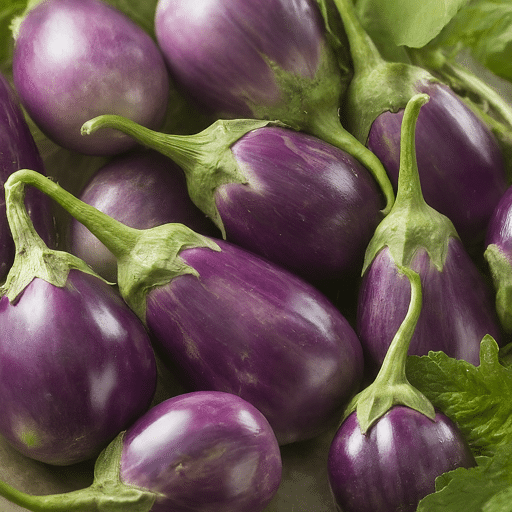
Is brinjals good for health
Brinjals (Baingan) are an indispensable source of nutrients, serving numerous health benefits to humans. Nutritional Components Value/100 grams indicates the importance of this versatile vegetable in a balanced diet.
| Nutritional Components | Value/100 grams |
| Energy | 25 kcal |
| Carbohydrates | 5.88 g |
| Protein | 0.98 g |
| Sugars | 3.53 g |
| Total lipid | 0.18 g |
| Dietary Fiber | 3 g |
| Calcium | 9 mg |
| Iron | 0.23 mg |
| Magnesium | 14 mg |
| Potassium | 229 mg |
| Sodium | 2 mg |
| Vitamin C | 2.2 mg |
| Vitamin B6 | 0.084 mg |
In addition, brinjal is teeming with essential vitamins and minerals, including thiamin, riboflavin, niacin, folate, and an array of amino acids.
8 Health Benefits of Brinjal
The benefits of brinjals are multifold, from gracing your dining table as part of sumptuous meals to significantly contributing to your health. This vegetable is instrumental in fending off chronic diseases, aiding weight loss, managing diabetes, boosting brain functions, preventing cancer, improving eye health, strengthening bones, and even lowering blood pressure. Brinjal is filled with copper, manganese, potassium, and magnesium and helps improve bone health, blood circulation, and heart function.
Let’s delve into each of these benefits in the following sections.
Rich in Antioxidants
Brinjal brims with powerful plant compounds loaded with antioxidant properties that help repel oxidative stress in the body. One such power-packed antioxidant is nasunin, which depicts an intense purple hue in some brinjals. A type of anthocyanin in the flavonoid family, nasunin exhibits potent free radical scavenging abilities, safeguarding your cells from damage. Not only does it fortify your immune system, but it also reduces inflammation, thus playing a vital role in fending off chronic diseases like cancer. Additionally, polyphenols present in brinjal may aid in reducing sugar absorption and augmenting insulin secretion, lowering blood sugar levels effectively.
Prevents Heart Disease

healthy heart
Today’s fast-paced lifestyle has escalated the cases of heart disease worldwide. Here’s where Brinjal steps in as a reliable ally for cardiovascular health. Brinjal is abundant in fibre and bioflavonoids, which can decrease the risk of heart disease by lowering the “bad” LDL cholesterol and boosting the “good” HDL cholesterol in your blood. Studies reveal that consuming eggplant juice can reduce LDL cholesterol levels and prevent potential heart complications. Moreover, the high potassium content in brinjal promotes heart health by regulating blood pressure levels and preventing heart disease. Overall, including brinjal in your meals can go a long way in maintaining a healthy heart.
Aids in Weight Loss
Struggling with stubborn weight gain? Brinjal might be your best bet! This low-calorie, high-fibre vegetable is a savoury addition to any weight loss diet. Dietary fibre is filling, which means fewer cravings and reduced calorie intake. The fibre in brinjals also slows digestion, delaying hunger pangs and promoting satiety. While purple brinjals are the popular choice, white brinjals are an excellent soluble fibre source and are equally effective for weight loss. Hence, incorporating fibrous foods like brinjal not only aids in weight loss but also ensures better digestion and prevents constipation.
Manages Diabetes
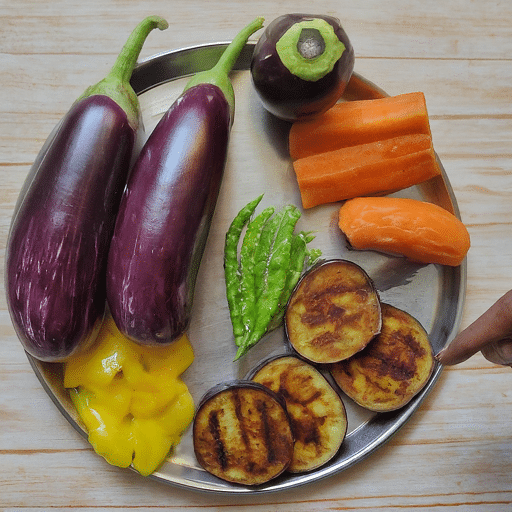
Brinjal for diabetes management
For individuals with diabetes or those at risk, brinjal is a worthwhile addition to your plate. It’s high in fibre and has a low glycemic index, measuring how much and how quickly a food raises blood sugar levels. These factors combined can help control blood sugar levels and manage diabetes effectively. Furthermore, the polyphenols in brinjal have shown the potential to reduce glucose absorption and boost insulin secretion, contributing to better blood sugar control. Insulin plays a crucial role in controlling blood glucose levels, and a balanced intake can aid diabetes management.
Boosts Brain Function
Did you know that brinjals could give your brain power a boost? That’s right! Brinjals contain a remarkable amount of phytonutrients, which protect cell membranes from damage and facilitate better communication between cells. This protective effect is particularly beneficial for the brain, where maintaining the integrity of cell membranes ensures proper communication between nerve cells and practical brain function. Add to this the antioxidants in the brinjal, and you have a powerhouse vegetable that protects against neural degeneration and improves cognitive functions. Improve your brain health, memory, and focus – all by adding some brinjal to your meals.
May Help Prevent Cancer
Brinjal has potential cancer-fighting abilities thanks to its abundance of powerful antioxidants and phytonutrients. Recent studies on eggplant extracts have indicated a potential capacity to reduce the growth of cancer cells, notably in cases of skin cancer. The antioxidants in brinjals, particularly epicatechins, chlorogenic acid, and more, can help reduce inflammation and oxidative stress, two critical factors in cancer development. Plus, its anti-inflammatory properties could lower the risk of inflammation-induced cancer. However, more extensive human studies are required to corroborate these potential benefits conclusively.
Improves Eye Health
The saying “eat your fruits and vegetables for good eyesight” applies to brinjals, too! Brinjals are rich in vitamin A and other important eye nutrients that protect your eyes from age-related diseases. It contains compounds like lutein, zeaxanthin, and xanthophylls, which enhance vision and safeguard the eyes against macular degeneration and cataracts. They offer protection against the harmful effects of high-energy blue light and prevent oxidative stress in the eyes—incorporate more brinjals in your meals to take care of your eye health.
Strengthens Bones
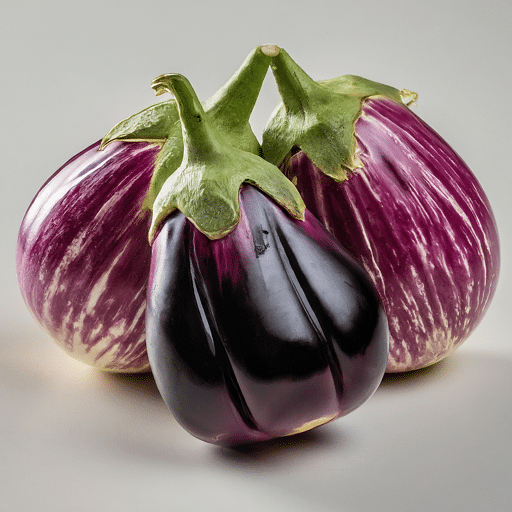
Brinjal for bone health
If you’re seeking foods for bone health, look at the brinjal. Packed with phenomenal calcium, potassium, and magnesium levels, it directly contributes to improved bone health and increased bone mineral density. These minerals are essential for preventing bone loss and lowering the risk of bone diseases like osteoporosis. Apart from strengthening your bones, the iron in the brinjals promotes the formation of red blood cells, which supports overall body development. Thus, consuming brinjals regularly can help enhance your body’s lower framework.
Cooking and Incorporating Brinjal Into Your Diet
With its unique texture and mild flavour, brinjal is versatile and can be cooked in various ways to suit your taste. Whether you prefer grilling, roasting, sautéing, or baking, this humble vegetable adapts beautifully to all cooking methods.
Brinjal can also replace high-calorie ingredients in various dishes, offering a healthy alternative while enhancing flavour. From serving as the star ingredient in tasty curries and stews to being a wholesome addition to salads and stir-fries, brinjal fits seamlessly into any meal plan.
Tips for Preparing Brinjal
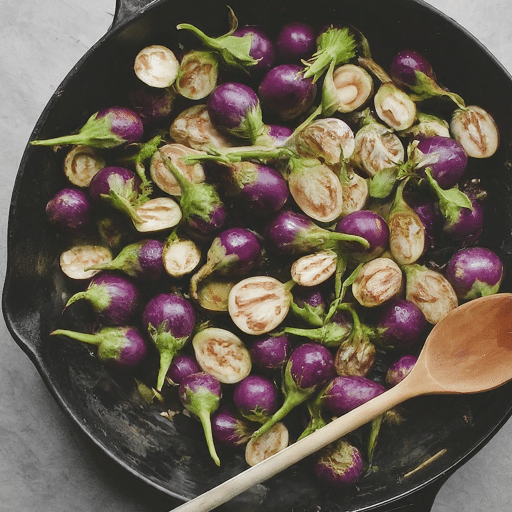
Brinjal cooking method
Preparing brinjal for your meals does not require any special culinary skills. Here are some simple tips to help you make the most of this nutritious vegetable:
- Always choose brinjals that are firm and have smooth, shiny skin. Avoid ones with blemishes, dents, or discolouration.
- Before cooking, wash the brinjal thoroughly under running water to remove any dirt or pesticides.
- If the brinjal has a bitter taste, slice it and sprinkle salt over the slices. Let it sit for about 30 minutes. This technique, known as “sweating,” draws out the bitter juices.
- You can eat brinjals with their skin on as this part contains many nutrients. However, make sure to clean it properly before use.
- Brinjal is known to absorb oil while cooking. Use a minimal amount of oil to avoid making your dish too greasy.
- Store brinjals in a loose plastic bag in the refrigerator. They are best used within a few days of purchase.
Recipe Ideas with Brinjal
Need some inspiration to start cooking with brinjal? Here are some mouth-watering ideas you can try:
- Stuffed Brinjals: These are a popular choice in Indian cuisine, where the brinjal is sliced halfway through and stuffed with a spicy mixture before being cooked.
- Brinjal Parmigiana: This is a classic Italian dish where sliced brinjal is layered with cheese and tomato sauce and then baked to perfection.
- Brinjal Stir-Fry: A healthy and versatile dish, you can pair brinjal with other vegetables and toss them in a flavorful sauce for a quick stir-fry.
- Brinjal Soup: A warm and comforting choice, combining brinjal with other vegetables and spices makes for a hearty soup.
- Baba Ghanoush: A Middle Eastern spread or dip made from roasted and mashed brinjal, tahini, and spices.
- Brinjal Pickles: These tangy pickles enhance the taste of any meal.
Know how to make Brinjal Green Curry.
What are the Uses of Brinjal Beyond Cooking?
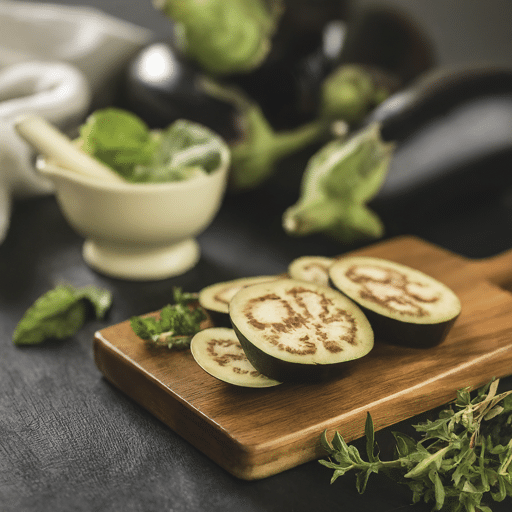
Brinjal as medicine
The use of brinjals extends beyond just culinary applications. Ayurvedic medicine hails brinjal as a potent remedy for managing various diseases. Brinjal’s roots, stalk, and leaves are often used to create beneficial medicines. Additionally, dried shoots of brinjal function well as a fuel source. In some parts of the world, the extracts from the brinjal plant are applied to wounds and cuts owing to their healing properties.
However, it’s important to seek professional advice before using brinjal or any other natural products for therapeutic purposes.
Side Effects and Precautions
While brinjal boasts several health benefits, it’s also essential to be aware of its potential side effects and precautions. Some people may experience digestive issues, allergic reactions, or an increase in symptoms of existing conditions like kidney stones when consuming brinjal.
Pregnant and nursing women should consume this vegetable cautiously due to their higher nutritional demands. If you have underlying health issues or are on medications, it would be wise to consult a healthcare provider before incorporating brinjal into your diet.
Digestive Issues
While the fibre content in brinjals can aid digestion, some individuals might experience digestive discomfort after consuming this vegetable. This is especially true for those who have a sensitive gut or suffer from conditions like irritable bowel syndrome (IBS) or Crohn’s disease. Brinjal can lead to bloating, gas, or indigestion in such individuals. Also, it’s best to avoid eating brinjal uncooked as it contains solanine. This toxic compound can cause vomiting, diarrhoea, and other gastrointestinal problems. Always cook brinjal thoroughly before consumption to reduce the presence of solanine.
Allergies
Like other vegetables in the nightshade family, Brinjal can cause allergic reactions in a small part of the population. These reactions can range from mild throat itching, skin rashes across the body, discomfort, or hoarseness. It’s necessary to note that only a tiny fraction of individuals suffer from brinjal allergies. However, if you exhibit these symptoms after consuming brinjal, it’s advisable to discontinue its usage and consult a healthcare provider. Those with known allergies to nightshade family plants should be cautious when introducing brinjal into their diet.
Oxalate Content
Brinjal contains oxalates, naturally occurring substances found in many plants. If consumed in large amounts, oxalates can form crystals in the body. These crystals can contribute to the development of kidney stones, a painful condition involving the buildup of hard deposits in the kidneys. Thus, if you are susceptible to kidney stones or are following a low-oxalate diet, limiting your intake of brinjal would be wise.
Pregnant and Nursing Women
Though brinjal is rich in essential nutrients beneficial for pregnancy and lactation, it should be consumed cautiously. It’s best to consult a medical professional to ascertain the safe consumption limits during these periods. Inappropriate or excessive consumption might lead to adverse effects such as digestive issues. Moreover, it’s important to note any allergic reaction after consuming brinjal during pregnancy or while breastfeeding, as this could affect the baby’s health.
Also Read: How to make Brinjal Pickles.
Conclusion
The humble brinjal, or eggplant, is a nutrition-packed vegetable with numerous health benefits when incorporated into a balanced diet. With its impressive nutrient profile and incredible versatility in the kitchen, brinjal enhances both the taste and nutritional value of your meals. The abundance of essential nutrients and antioxidants in brinjal offers significant health benefits such as improved digestive health, enhanced cognitive function, better blood sugar control, weight management, and reduced risk of chronic diseases.
Individuals with specific health concerns, such as allergies, digestive issues, kidney stones, or pregnant and nursing women, should consult with a healthcare provider before incorporating brinjal into their meals.
Frequently Asked Questions
Which colour of Brinjal is best for your health?
All brinjal varieties, whether purple, green, or white, possess valuable nutrients. However, the darker the skin, the higher the phytonutrient content. Therefore, the deep purple brinjals might provide more health benefits due to their high antioxidant content.
What is the ideal cooking method for brinjal to retain its nutrients?
The ideal cooking method for brinjal varies depending on personal preferences and specific dietary considerations. However, steaming or stir-frying brinjal is generally considered healthier. These techniques help maintain the maximum nutrients while rendering the brinjal tender and delicious.
Is it safe to eat the skin of a brinjal?
Yes, the skin of a brinjal is safe to eat. It is packed with essential nutrients and antioxidants, which contribute significantly to its health benefits. However, ensure the brinjal is thoroughly washed before consumption to remove dirt or pesticides.
Can you eat brinjal every day?
While brinjal is a nutritious vegetable, its daily consumption should depend on individual health, dietary needs, and tolerance. Incorporating brinjal into daily meals could provide various health benefits for most healthy individuals. If you have specific health issues like kidney stones or allergies, consult your healthcare provider.
How do you store brinjal to maintain freshness?
To keep brinjals fresh, store them in the refrigerator. It’s best to store them in a loose plastic bag, as this allows them to breathe and retain their freshness longer. Additionally, try to use the brinjals as soon as possible after purchasing them to maintain their flavour and nutrient content.
Is it necessary to salt brinjal before cooking?
While salting brinjal before cooking is not obligatory, this process, known as “sweating,” can reduce the vegetable’s bitterness and prevent it from absorbing too much oil during cooking. Accordingly, salting brinjal before cooking is a common practice that enhances its taste and texture.









